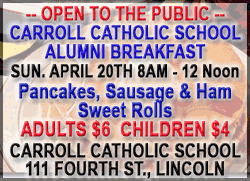 A Masters that began with so much buzz had become little more than a murmur.
A Masters that began with so much buzz had become little more than a murmur.
The Grand Slam that Woods said was "easily within reason" will have to start with the second-best comeback at Augusta National.
"You can come back pretty quickly here," Woods said. "This golf course, anything can happen."
Plenty of things already have - just not what anyone expected.
The 36-hole leader was Trevor Immelman, who only four months ago was in a hospital in South Africa to begin a speedy recovery from a benign tumor that doctors removed from his diaphragm. He put together his best start of the year, adding another 4-under 68 to build a one-shot lead over Brandt Snedeker.
"This year is special," said Immelman, who was at 8-under 136. "To shoot two 68s in the first two days is probably beyond my expectations, so I'm pretty thrilled right now."

Woods only came to life when the wind died late in the afternoon. He stuffed his approach into 2 feet for a birdie on the 17th, then escaped with par on the final hole when he drove into the trees. Woods hit a low hook off the pine straw around tree trunks and into the 10th fairway, then hit a sand wedge that might have spun back closer to the hole if not for hitting Stuart Appleby's ball.
No matter. Woods made the 8-footer for par and a 71.
Even so, he was at 1-under 143 and seven shots out of the lead. The largest 36-hole comeback in Masters history was Jack Burke Jr. in 1956, and that required a weekend collapse by Ken Venturi, who played that year as an amateur.
"I'm in good shape," Woods said, perhaps knowing something the 40,000 fans at Augusta didn't. "I'm obviously seven back. I need to play well. We've got tougher conditions coming in. I've just got to hang in there."
Woods rallied to win from six shots behind over the final two rounds in 2005, but he was tied for third. This time, he had a dozen players ahead of him, and they were no amateurs.
Phil Mickelson, who has won the green jacket two of the last four years, got enough out of his second round to post a bogey-free 68 and was three shots behind at 139 along with Ian Poulter of England and Steve Flesch, whose 67 was the best score of the week.
"You want to stay close," said Mickelson, who is emerging as the favorite. "You don't want to make any big mistakes and get way out."

Immelman set an early target.
Playing in the fourth group of the morning, before the wind began to rustle the pines, he made the turn in 35 and navigated the dangerous 11th hole with a 7-iron that stopped 5 feet away for birdie. And while the 28-year-old South African failed to birdie the par 5s on the back nine, he atoned for that by closing with two birdies.
Immelman has never taken the lead into a weekend at any major. Returning from his Dec. 18 surgery, he has not finished among the top 40 in seven stroke-play events this year.
But he received strong advice from a couple of Masters champions this week, South African icon Gary Player and Ben Crenshaw, who have told him his polished swing is more than adequate.
"The best players in the world get nervous and they feel pressure," Immelman said. "I guess it's just who can disguise it the best and who can handle it the best. I'm thrilled with my play thus far, but there's a very long way to go. I can't sit back and put my feet up. I've got to go out there and just try and play as well as I can the next couple of days."
Snedeker, the PGA Tour rookie of the year in 2007, turned in the craziest birdie of the round when he used his wedge to chip from the upper tier of the par-3 sixth green, a perfect play that rattled into the cup.
"I was more nervous over that shot than I was all day," Snedeker said. "Because I knew if I messed it up, people were going to have a field day with me on that one. I had to pull it off."